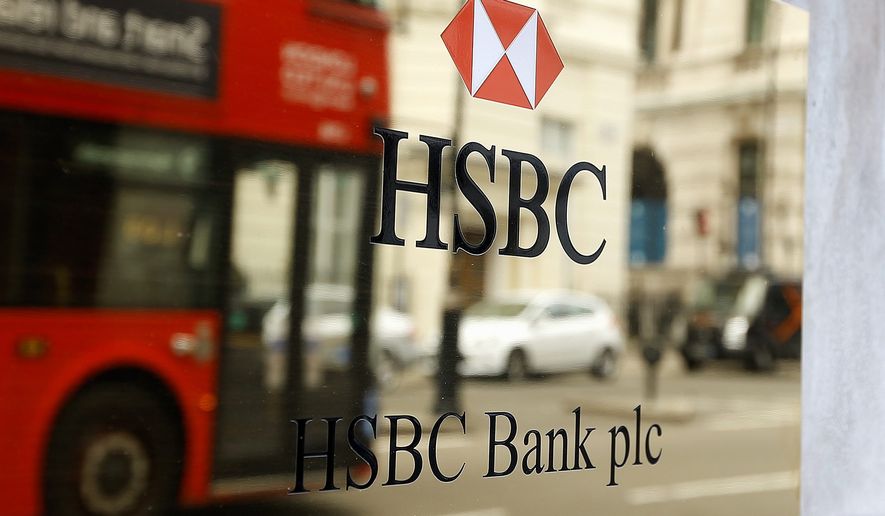Buffeted by scandals, squeezed profits, new competitors and a disorienting technological revolution, some of the world’s biggest banks are going on a radical diet, shedding thousands of workers and shaking up the boardroom in a bid to stay profitable and relevant in a fast-changing financial landscape.
London-based HSBC, Britain’s biggest bank by assets, and German lending giant Deutsche Bank were the latest to join the trend, with HSBC on Tuesday announcing plans for a stunning string of global layoffs just two days after Deutsche Bank’s top executives were forced to step down in the midst of a fraud investigation.
HSBC announced on Tuesday plans to lay off up to 50,000 employees by 2017 at the same time that authorities conducted a raid on Deutsche Bank headquarters in Frankfurt, Germany, on suspicions of fraud related to securities transactions. This comes just two days after the resignation of both Deutsche Bank co-chief executives, Anshu Jain and Juergen Fitschen.
The two banks are not alone. JPMorgan Chase said last month it was cutting 5,000 jobs, and rumors are rife that other major lenders, including Minneapolis-based U.S. Bancorp, TD Bank and others will soon follow suit. The problems can vary from bank to bank, but the moves represent an overall frustration among big-time bankers in the board room.
Stuart Gulliver, HSBC chief executive, said in a statement Tuesday that the bank was undertaking “a significant reshaping of its business portfolio,” with a major refocusing of assets on profitable markets and the booming Asian market. HSBC “is redeploying resources to capture expected future growth opportunities and adapting to structural changes in the operating climate,” he said.
Analysts said the move reflects deeper woes for the world’s financial giants trying to adapt to a changing world.
“Banks make money by earning more interest than they pay for their deposits, but their model is being murdered by regulators,” said Avinash Persaud, a nonresident senior fellow at the Peter G. Peterson Institute for International Economics in Washington.
High regulatory costs, low interest rates and massive corruption cases have led to a reshaping of the world’s major banking powers. The big banks see it to their advantage to reduce their fixed cost and employment base to reach to a more manageable size by laying off workers and moving toward a more automated banking model, which they say helps reduce expenses and jump-start growth.
“In the boardroom, they’re wondering how to make money with ways regulators are comfortable with, and that’s making them rethink their model,” Mr. Persaud said.
HSBC also announced its withdrawal from sluggish markets in Turkey and Brazil and suggested it may relocate its headquarters from the U.K. to Hong Kong in a move aimed at refocusing its strategy on a rising Asia.
“We recognize that the world has changed, and we need to change with it,” Mr. Gulliver said.
Historic ties
HSBC has historic ties to the region. It was founded in Hong Kong in 1865, when the city was a British colony, in order to finance growing trade between China and Europe, much of it involving opium. Its original name says it all: The Hongkong and Shanghai Banking Corporation.
The company only became London-based in 1992 to meet the regulatory requirements of its acquisition of Midland Bank at the time.
HSBC hopes to capture cost savings of up to $5 billion by 2017 in addition to a more than 10 percent return on equity within the same time frame.
“In the old days, banks imagined a global model where they could pass small amounts of capital around the world,” said Mr. Persaud. “Today’s banking has become much more local, which has made it more expensive. This is going to push banks to focus on local retail business. And local retail businesses are going to be more profitable in Asia.”
In a similar attempt to remodel its banking strategy to fit the changing times, JPMorgan announced in May plans to cut at least 2 percent of its workforce within the next year, slashing more than 5,000 jobs.
The Royal Bank of Scotland (RBS) said in March it will cut over 80 percent of its investment banking unit by 2019, eliminating 14,000 jobs. Barclays also joined the pack of big bank transformations, proposing last year that it would lay off 19,000 employees by 2017.
With so many banks undergoing such drastic changes simultaneously, “it does question the existing banking model,” according to Mr. Persaud.
“It’s only relatively recently that the assets that regulators require the banks to own have turned a negative yield. It’s very hard for banks to make money if they own things that produce a loss,” he added.
Recent investigations into banking corruption have plagued some of the world’s major banks, damaging their reputations with some investors.
On May 20, the Department of Justice issued a total of over $5 billion in fines to JPMorgan, Citicorp, Barclays and RBS, all of whom pled guilty to felony charges after manipulating the global currency market.
Attorney General Loretta Lynch called the settlements “historic resolutions” and vowed to continue to investigate and prosecute financial crimes.
HSBC’s announcement Tuesday angered Britain’s labor unions, which argued the bank’s own recent regulatory scandals — not its staffing costs — were to blame for its recent troubles. HSBC has paid billions in fines globally to settle investigations of market rigging and allegations it helped clients evade taxes and launder money.
“Front-line staff have suffered time and time again as they are forced to pay for the mistakes of others with their jobs, their terms and conditions and their reputation,” Dominic Hook of Unite union told The Associated Press.
• This article was based in part on wire service reports.
• Brennan Weiss can be reached at bweiss@washingtontimes.com.




Please read our comment policy before commenting.